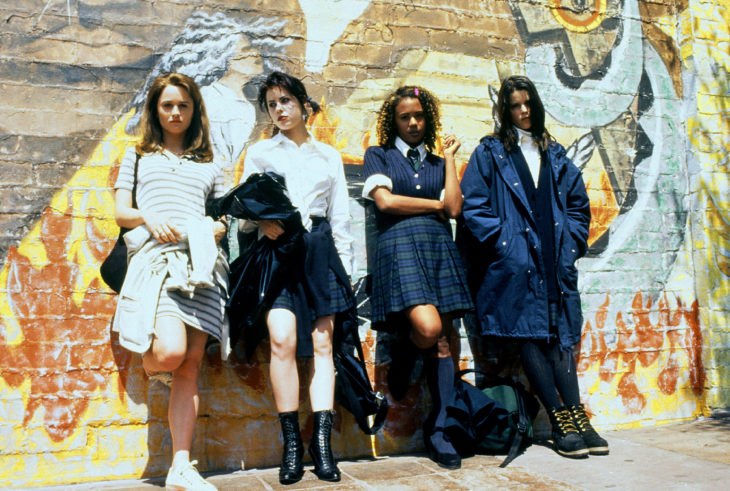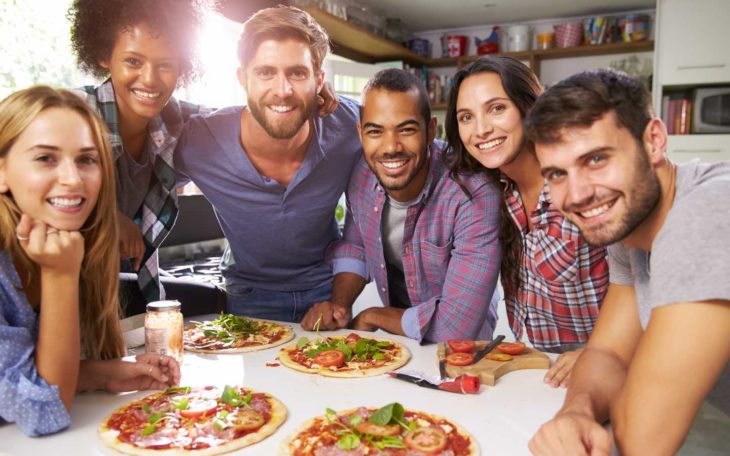In “Young Adult,” Diablo Cody’s film Charlize Theron plays Mavis, a divorced novelist who returns to her home in small-town Minnesota determined to rekindle a romance with her high school boyfriend. Mavis may have gotten older, but she hasn’t exactly grown up or figured out how to let go of the past.
One reason for Mavis’ issues? She has no one in her life telling her “no.” No one to encourage and inspire her to be her best self, no one whose feelings she is expected to care about. In short, she has no friends at all — until she meets Matt (Patton Oswalt), a guy whose existence she was oblivious to in high school, who now offers her a little tough love and a reality check, just as any real friend would. He hopefully offers the first of many lessons about friendship that Mavis desperately needs to learn. Here are seven things we’ve learned about friendship since high school. If you have a “Mavis” in your life, print this out and pass it along…

Source: IvyWise
1. Your friends’ priorities can change — best to be okay with that. You will grow apart from certain friends because you choose different directions in your life. Things like career, parenthood, and relationships will cause rifts you never knew they could. If you want to try and keep those friends despite an emotional, physical, or lifestyle distance, best to let go of the past and focus on building something new with them.
2. Real friends sometimes have conflict and fight. In fact, this may be a sign of a healthy friendship, in which both people involved are open with their emotions and trust enough to drop their guards. Fighting sucks, but it’s always better than letting negative emotions fester until they explode or long-term resentment builds. A fight with your bestie is not the end of the world.
3. You can love someone dearly, but still have nothing left to say to them. On the flip side of #2, you can have friends with whom you never fight — because there is so little to say. These friendships may be more peaceful, but they’re not as rewarding.

Source: Claire Lehmann
4. Some friends are bad for you. They drain your energy and stunt your growth. You need to dump them. Maybe your best friend from high school begrudges your success and isn’t supportive of your life; if her attitude continues to bring you down, after repeated attempts to get to the heart of the problem — like, for example, her own insecurities — it’s on you to
5. Close friendships can be like romantic relationships. Some are short and intense, some are long-term, and some are on-again-off-again. One or two last a life time. Enjoy the time you have with a friend while you have it.

Source: counselling Calgary
6. There are different levels of friendship. Make sure you know who belongs on what level when deciding how much energy to put into the relationship, how much to trust them, etc. All friendships can’t be the same and shouldn’t be compared. Recognize the role each of them plays in your life and the role you play in theirs.
7. It’s harder to make new friends as an adult, but the ones you do develop can be some of the best. I made my first best friend when I was in 1st grade and we were assigned seats next to each other. That was all it took to make us inseparable. It’s not that simple as an adult. Without school throwing your peer group together for eight hours a day, making friends is largely done at work or through recreational activities. Even if you’re lucky enough to work with people your own age, the priorities of adulthood make developing new friendships a slower process. That’s why the ones you do develop can be so meaningful — you wanted to put effort and time into it, rather than having it done for you as a result of circumstance.
Original by
